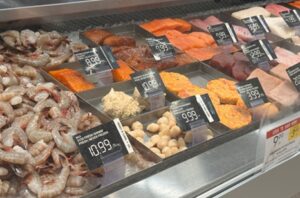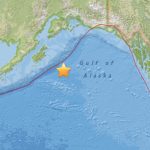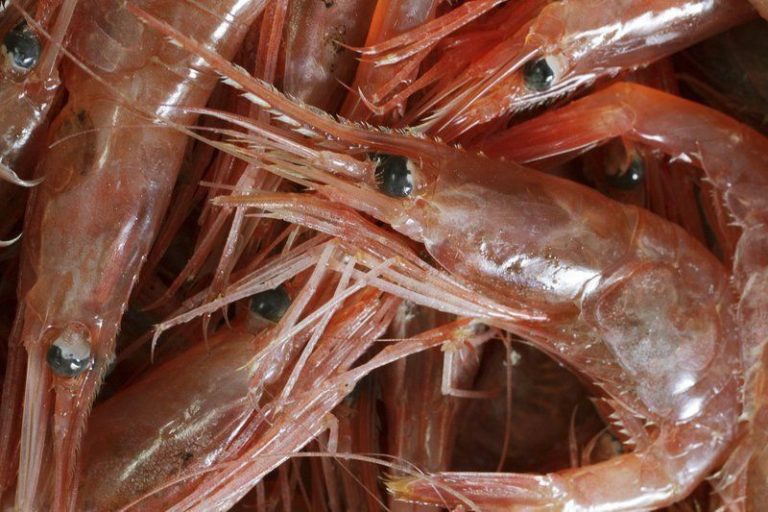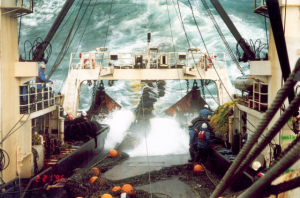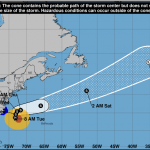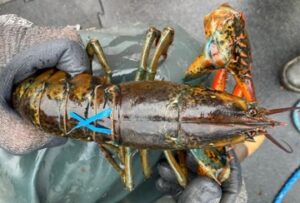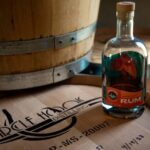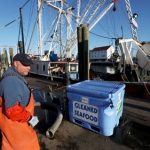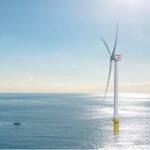Category Archives: Canada

A long time coming; Fish plant in Arnold’s Cove processes the first NL-caught northern cod since 1992 moratorium
There was no shortage of excitement at the fish plant in Arnold’s Cove on Thursday, Feb. 27, 2025, as the Icewater Seafoods processed its first offshore northern cod caught by Newfoundland and Labrador’s fleet since 1992. That was the year the commercial offshore fishery for northern cod came to a grinding halt under the moratorium imposed by the federal Department of Fisheries and Oceans (DFO). On Thursday, Capt. Peter Melvin and his 29-person crew from the Katsheshuk II, one of Ocean Choice International’s two offshore groundfish vessels, landed offshore Northern cod for the first time at the Icewater Seafoods plant. The crew was proud to be the first and we were encouraged by what we saw. The catch rates were good, we had clean catch with little to no bycatch and the fish were healthy. Photos, more, >>CLICK TO READ<< 16:45
Chiefs granted intervenor status in border-crossing lobster case
 An Indigenous nation has been granted intervenor status in a case involving a U.S.-based lobster fisher accused of illegally fishing in Passamaquoddy Bay. Erik D. Francis, 55, of Perry, Maine, faces charges under the Coastal Fisheries Protection Act alleging that he illegally fished from a foreign vessel in New Brunswick waters. According to court documents, he was stopped on Nov. 15, 2022, off the coast of Deer Island by fisheries officials, who seized 36 lobster traps owned by Francis. Francis, who is self-represented, has claimed Indigenous fishing rights as a part of the Peskotomuhkati (Passamaquoddy) Nation, which has two communities in Maine including Sipayik (Pleasant Point), where Francis lives, and the community known as Skutik in Charlotte County. more, >>CLICK TO READ<< 09:58
An Indigenous nation has been granted intervenor status in a case involving a U.S.-based lobster fisher accused of illegally fishing in Passamaquoddy Bay. Erik D. Francis, 55, of Perry, Maine, faces charges under the Coastal Fisheries Protection Act alleging that he illegally fished from a foreign vessel in New Brunswick waters. According to court documents, he was stopped on Nov. 15, 2022, off the coast of Deer Island by fisheries officials, who seized 36 lobster traps owned by Francis. Francis, who is self-represented, has claimed Indigenous fishing rights as a part of the Peskotomuhkati (Passamaquoddy) Nation, which has two communities in Maine including Sipayik (Pleasant Point), where Francis lives, and the community known as Skutik in Charlotte County. more, >>CLICK TO READ<< 09:58
Judge sides with DFO in elver quota dispute
 A judge has refused to overturn a decision made last year by a federal fisheries official to maintain the total annual quota for the Maritime juvenile eel fishery at 9,960 kilograms, a number that hasn’t budged for two decades. A group of commercial licence holders have argued there’s science that backs up their push to increase the total allowable catch, which they say would encourage more people who are fishing without authorization to enter the legal system. The case was in Federal Court earlier this month. In a Feb. 21 decision, Justice Richard Southcott sided with the federal government, ruling the reasons underpinning the quota decision were “comprehensible and rational.” more, >>CLICK TO READ<< 07:37
A judge has refused to overturn a decision made last year by a federal fisheries official to maintain the total annual quota for the Maritime juvenile eel fishery at 9,960 kilograms, a number that hasn’t budged for two decades. A group of commercial licence holders have argued there’s science that backs up their push to increase the total allowable catch, which they say would encourage more people who are fishing without authorization to enter the legal system. The case was in Federal Court earlier this month. In a Feb. 21 decision, Justice Richard Southcott sided with the federal government, ruling the reasons underpinning the quota decision were “comprehensible and rational.” more, >>CLICK TO READ<< 07:37
N.L. snow crab stocks remain healthy, but there is a threat to growth: DFO
 Newfoundland and Labrador snow crab stocks appear to remain healthy, Fisheries and Oceans Canada (DFO) said Tuesday during its annual stock assessment report. The latest assessment suggests the 2024 biomass of commercial-sized snow crab, which measure at a 95-millimeter shell width, remains near the same level as the year prior. Snow crab landings were recorded at over 56,000 tonnes in 2024. However, the assessment indicates poor stock growth over the next two to four years because of environmental conditions like warming oceans. Snow crab thrive in cold water with a narrow range of temperatures, and a warming climate can stunt production, growth and survival. It typically takes a male snow crab nine to 13 years to reach the legal commercial size. more, >>CLICK TO READ<< 16:56
Newfoundland and Labrador snow crab stocks appear to remain healthy, Fisheries and Oceans Canada (DFO) said Tuesday during its annual stock assessment report. The latest assessment suggests the 2024 biomass of commercial-sized snow crab, which measure at a 95-millimeter shell width, remains near the same level as the year prior. Snow crab landings were recorded at over 56,000 tonnes in 2024. However, the assessment indicates poor stock growth over the next two to four years because of environmental conditions like warming oceans. Snow crab thrive in cold water with a narrow range of temperatures, and a warming climate can stunt production, growth and survival. It typically takes a male snow crab nine to 13 years to reach the legal commercial size. more, >>CLICK TO READ<< 16:56
RESULTS OF LATEST SNOW CRAB ASSESSMENT
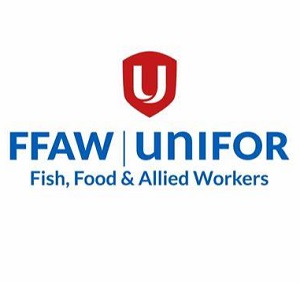 Today, the Department of Fisheries and Oceans (DFO) released the latest stock assessment update for Newfoundland and Labrador’s snow crab fishery, reporting differences in stock health among regions. Attending on behalf of FFAW- Unifor were Fisheries Scientist, Dr. Erin Carruthers, with harvesters Nelson Bussey and Chad Waterman (3LNO), Scott Spurvey (3Ps), Eldred Woodford (3K), as well as Alton Rumbolt who participated online (2J).Nelson Bussey highlighted the good news for 3LNO noting that, “Biomass levels are at the highest levels seen in decades, likely, in part, because we have maintained reasonable exploitation levels. There appears to be scope for growth, which is welcome news for the fleets in our areas.” more, >>CLICK To READ<< 10:01
Today, the Department of Fisheries and Oceans (DFO) released the latest stock assessment update for Newfoundland and Labrador’s snow crab fishery, reporting differences in stock health among regions. Attending on behalf of FFAW- Unifor were Fisheries Scientist, Dr. Erin Carruthers, with harvesters Nelson Bussey and Chad Waterman (3LNO), Scott Spurvey (3Ps), Eldred Woodford (3K), as well as Alton Rumbolt who participated online (2J).Nelson Bussey highlighted the good news for 3LNO noting that, “Biomass levels are at the highest levels seen in decades, likely, in part, because we have maintained reasonable exploitation levels. There appears to be scope for growth, which is welcome news for the fleets in our areas.” more, >>CLICK To READ<< 10:01
Inside Canada’s lobster wars
 Nighttime provides ideal cover for acts of sabotage in the sleepy fishing villages along the southern shores of Nova Scotia. Slashed buoys, stolen lobster crates, mysterious fires. These are just some of the acts of vandalism on the wharves where lobster fishers have been locked in battle for more than three decades. Lobstermen have a simple way of framing the dispute: think of the ocean’s bounty like a pie. They are asking who should get a piece, and what is the fairest way to divide it between the white Canadians who built the commercial lobster industry and the indigenous people who were historically left out. The Canadian government, which regulates fisheries, has been reluctant to settle the politically fraught issue, alienating warring fishers on both sides. Photos, more, >>CLICK TO READ<< 06:29
Nighttime provides ideal cover for acts of sabotage in the sleepy fishing villages along the southern shores of Nova Scotia. Slashed buoys, stolen lobster crates, mysterious fires. These are just some of the acts of vandalism on the wharves where lobster fishers have been locked in battle for more than three decades. Lobstermen have a simple way of framing the dispute: think of the ocean’s bounty like a pie. They are asking who should get a piece, and what is the fairest way to divide it between the white Canadians who built the commercial lobster industry and the indigenous people who were historically left out. The Canadian government, which regulates fisheries, has been reluctant to settle the politically fraught issue, alienating warring fishers on both sides. Photos, more, >>CLICK TO READ<< 06:29

The American lobster’s baby bust
The Gulf of Maine is home to one of the most valuable fisheries in the United States. Every year, American lobsters (Homarus americanus) from the gulf fuel a multibillion-dollar industry, buoying fishing communities across New England and across the border into Atlantic Canada. The Gulf of Maine is also heating up faster than almost any other marine environment on Earth. In the gulf, rising water temperatures and shifting currents have already triggered shocking declines in other mainstay catches, such as northern shrimp, and put surprising new species in fish traps. Now, ongoing research led by Joshua Carloni, a marine biologist with the New Hampshire Fish and Game Department, shows a potentially dire situation brewing for the area’s most valuable species—the lobster. more, >>CLICK TO READ<< 08:36
How Atlantic Canada came to rule the slimy, slippery, squirmy big business of baby eels
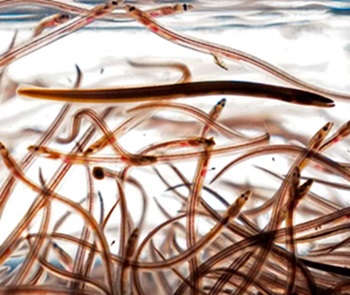 During his lifetime, Philip Holland was known as a dedicated Crown prosecutor who put the bad guys behind bars. But his legacy could very well be the lucrative baby eel industry he started in Canada under the most modest of circumstances, keeping the tiny, squirmy critters he had plucked from cold New Brunswick rivers alive in plastic tubs in his basement before shipping them to Asia. And yet, more than two decades after his death and 36 years since he was granted an experimental licence to capture glass eels, the elver industry in Atlantic Canada has become deliriously successful, worth millions. more, >>CLICK TO READ<< 08:17
During his lifetime, Philip Holland was known as a dedicated Crown prosecutor who put the bad guys behind bars. But his legacy could very well be the lucrative baby eel industry he started in Canada under the most modest of circumstances, keeping the tiny, squirmy critters he had plucked from cold New Brunswick rivers alive in plastic tubs in his basement before shipping them to Asia. And yet, more than two decades after his death and 36 years since he was granted an experimental licence to capture glass eels, the elver industry in Atlantic Canada has become deliriously successful, worth millions. more, >>CLICK TO READ<< 08:17
Career Commercial Fisherman Richard Paterson has passed away
 With heavy hearts, we share the passing of Richard Paterson, who passed away peacefully in his sleep on Feb 5 at Inglewood Care Centre in North Van. He was deeply loved and will be missed. He spent several years with the North Van Fire Dept, where he also worked as a paramedic and ambulance driver, before embarking on a long & fulfilling career as a commercial fisherman. In 1966, Richard & Rhea moved their young family to Qualicum Beach, where they built their cherished Pan-Abode home and second troller, Plus III, in their backyard. From 1975 Richard and his family spent 8 yrs homesteading on Read Island, embracing a life of resilience and self-sufficiency. In 1989 he remarried, and by 1993, he had returned to his family estate in Lynn Valley. He continued fishing and kept the Plus III in False Creek until 2011. more, >>CLICK TO READ<< 17:11
With heavy hearts, we share the passing of Richard Paterson, who passed away peacefully in his sleep on Feb 5 at Inglewood Care Centre in North Van. He was deeply loved and will be missed. He spent several years with the North Van Fire Dept, where he also worked as a paramedic and ambulance driver, before embarking on a long & fulfilling career as a commercial fisherman. In 1966, Richard & Rhea moved their young family to Qualicum Beach, where they built their cherished Pan-Abode home and second troller, Plus III, in their backyard. From 1975 Richard and his family spent 8 yrs homesteading on Read Island, embracing a life of resilience and self-sufficiency. In 1989 he remarried, and by 1993, he had returned to his family estate in Lynn Valley. He continued fishing and kept the Plus III in False Creek until 2011. more, >>CLICK TO READ<< 17:11
P.E.I. snow crab fishery faces deep cuts in catches as U.S. tariffs loom
 P.E.I. snow crab fishers are facing a big cut in how much they can catch in 2025, with the federal Department of Fisheries and Oceans recommending a 33 per cent reduction in their quota in the southern Gulf of St. Lawrence. That number is based on concerns about the health of the crab population and comes as the threat of a U.S. tariff looms over the industry. “It kind of hits you hard because it’s a substantial amount of crab to lose and it’s a substantial income to lose,” said Alden Gaudet, who fishes snow crab out of Tignish Run and is vice-president of the P.E.I. Snow Crab Association. “I believe we’ll be dropping about 20,000 pounds per licence this year, and I believe we dropped 21,000 pounds per P.E.I. licence last year,” Gaudet said. Photos, more, >>CLICK TO READ<< 17:05
P.E.I. snow crab fishers are facing a big cut in how much they can catch in 2025, with the federal Department of Fisheries and Oceans recommending a 33 per cent reduction in their quota in the southern Gulf of St. Lawrence. That number is based on concerns about the health of the crab population and comes as the threat of a U.S. tariff looms over the industry. “It kind of hits you hard because it’s a substantial amount of crab to lose and it’s a substantial income to lose,” said Alden Gaudet, who fishes snow crab out of Tignish Run and is vice-president of the P.E.I. Snow Crab Association. “I believe we’ll be dropping about 20,000 pounds per licence this year, and I believe we dropped 21,000 pounds per P.E.I. licence last year,” Gaudet said. Photos, more, >>CLICK TO READ<< 17:05
70-year-old giant lobster ‘Mignolet’ dies before it can be repatriated to Canada
 Giant lobster ‘Mignolet’ was supposed to be the showpiece of Jo Taveirne’s brasserie in Harelbeke. Jo named the animal after Club Brugge goalkeeper Simon Mignolet. He bought the lobster through his fishmonger and had it flown over from Canada especially. ‘The intention was to put it in the homarium (i.e. the lobster aquarium) in my business,’ he told local media. But Jo was the target of considerable online abuse. Customers accused him of being an animal torturer and did not show up for reservations. So, he finally decided to send the lobster back. more, >>CLICK TO READ<< 09:12
Giant lobster ‘Mignolet’ was supposed to be the showpiece of Jo Taveirne’s brasserie in Harelbeke. Jo named the animal after Club Brugge goalkeeper Simon Mignolet. He bought the lobster through his fishmonger and had it flown over from Canada especially. ‘The intention was to put it in the homarium (i.e. the lobster aquarium) in my business,’ he told local media. But Jo was the target of considerable online abuse. Customers accused him of being an animal torturer and did not show up for reservations. So, he finally decided to send the lobster back. more, >>CLICK TO READ<< 09:12
Snow crab quotas way up for some Cape Bretoners, way down for others
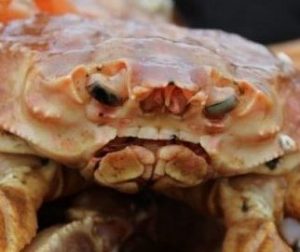 Gulf of St. Lawrence snow crab fishermen are learning who’ll be winners and losers when quotas are divided up for the 2025 season. At a meeting with Fisheries and Oceans Canada (DFO) in Moncton this week, the commercial fishermen in Area 19 (near shore in western Cape Breton) learned they’ll get a 42 per cent quota increase. That’ll offset quota cuts in the past two years that equaled about the same. The much larger Area 12 fishery, which covers the central Gulf of St. Lawrence all the way to New Brunswick, meanwhile, can expect to see an over 20 per cent cut to their quota. Demand for snow crab is high in the United States, where 85 per cent of what’s caught in the southern Gulf goes. Prices were around $4 a pound last year and it was hoped to be higher this season. But U.S. President Donald Trump’s threat of a 25 per cent tariff could hurt everyone’s bottom line. “We’re waiting on Trump, like every industry from forestry to mining,” said MacLean. more, >>CLICK TO READ<< 15:22
Gulf of St. Lawrence snow crab fishermen are learning who’ll be winners and losers when quotas are divided up for the 2025 season. At a meeting with Fisheries and Oceans Canada (DFO) in Moncton this week, the commercial fishermen in Area 19 (near shore in western Cape Breton) learned they’ll get a 42 per cent quota increase. That’ll offset quota cuts in the past two years that equaled about the same. The much larger Area 12 fishery, which covers the central Gulf of St. Lawrence all the way to New Brunswick, meanwhile, can expect to see an over 20 per cent cut to their quota. Demand for snow crab is high in the United States, where 85 per cent of what’s caught in the southern Gulf goes. Prices were around $4 a pound last year and it was hoped to be higher this season. But U.S. President Donald Trump’s threat of a 25 per cent tariff could hurt everyone’s bottom line. “We’re waiting on Trump, like every industry from forestry to mining,” said MacLean. more, >>CLICK TO READ<< 15:22
Large fishing boat overturns and leaks near Bella Bella; fishermen rescued
 A 58-foot fishing vessel, the Western Gambler, has run aground near Napier Point, about three kilometres south of Bella Bella. Early in the morning on Feb. 19, the Canadian Coast Guard (CCG) received a report that a craft was taking on water and tilting to one side. The Bella Bella lifeboat station crew responded quickly to help with the situation. “The CCGS Cape Farewell and our Bella Bella Fast Rescue Craft arrived on-scene and rescued the four fishermen onboard,” said the Canadian Coast Guard on behalf of the Unified Command group formed to respond to this incident The Unified Command group is a consortium of local and federal agencies including the CCG and DFO. No human injuries have been reported. more, >>CLICK TO READ<< 10:46
A 58-foot fishing vessel, the Western Gambler, has run aground near Napier Point, about three kilometres south of Bella Bella. Early in the morning on Feb. 19, the Canadian Coast Guard (CCG) received a report that a craft was taking on water and tilting to one side. The Bella Bella lifeboat station crew responded quickly to help with the situation. “The CCGS Cape Farewell and our Bella Bella Fast Rescue Craft arrived on-scene and rescued the four fishermen onboard,” said the Canadian Coast Guard on behalf of the Unified Command group formed to respond to this incident The Unified Command group is a consortium of local and federal agencies including the CCG and DFO. No human injuries have been reported. more, >>CLICK TO READ<< 10:46
Lobster dealer released from custody in southwest N.S. extortion case
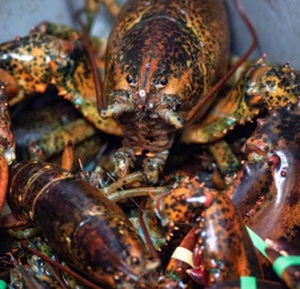 A 65-year-old lobster dealer from southwest Nova Scotia accused of multiple counts of intimidation has been released from custody pending trial, following a hearing Wednesday in provincial court. Eric David Thibault had been in custody since early February when he, along with his son and another man, were accused of trying to extort $10,000 from a former fisherman at his home near Saulnierville, N.S. Judge Chris Manning released both Thibault and his son, Zacharie David Thibault, 32, on Wednesday. Details of the hearing in Annapolis Royal provincial court, including the reasons cited by the judge, are banned from publication. The Crown was seeking to keep the pair in custody before their trial and to have their bail revoked on earlier charges related to their arrests in December in another alleged intimidation case. more, >>CLICK TO READ<< 07:18
A 65-year-old lobster dealer from southwest Nova Scotia accused of multiple counts of intimidation has been released from custody pending trial, following a hearing Wednesday in provincial court. Eric David Thibault had been in custody since early February when he, along with his son and another man, were accused of trying to extort $10,000 from a former fisherman at his home near Saulnierville, N.S. Judge Chris Manning released both Thibault and his son, Zacharie David Thibault, 32, on Wednesday. Details of the hearing in Annapolis Royal provincial court, including the reasons cited by the judge, are banned from publication. The Crown was seeking to keep the pair in custody before their trial and to have their bail revoked on earlier charges related to their arrests in December in another alleged intimidation case. more, >>CLICK TO READ<< 07:18
Athearn Marine Agency Boat of the Week: 44′ 6″ Mussel Ridge Lobster/ Tuna,750HP – John Deere Diesel, Video
 To review specifications, information, with 10 photos, >click here<. To see all the boats in this series >click here<06:30
To review specifications, information, with 10 photos, >click here<. To see all the boats in this series >click here<06:30
Scientists at U.S. weather forecasting agency ordered to get clearance before talking to Canadian counterparts
 Travelling for international meetings or even joining a call with Canadian counterparts has become impossible for some U.S. government scientists, under new directives since U.S. President Donald Trump took office. Canadian ecologist Aaron Fisk says he recently tried to set up a virtual call to discuss plans with American colleagues, including a government scientist, around sampling fish. “We tried to have a quick meeting with one of our collaborators … and they were denied access,” Fisk said. Given that the Great Lakes — and their aquatic life — straddle both sides of the border, having American scientists suddenly barred from meetings has had deep impacts. That, combined with funding freezes, is drastically altering the way science works in North America, at least for now. Fisk, who is the Canada Research Chair in Changing Great Lakes Ecosystems at the University of Windsor, receives funding from the U.S. National Oceanic and Atmospheric Administration (NOAA) for his work. more, >>CLICK TO READ<< 19:44
Travelling for international meetings or even joining a call with Canadian counterparts has become impossible for some U.S. government scientists, under new directives since U.S. President Donald Trump took office. Canadian ecologist Aaron Fisk says he recently tried to set up a virtual call to discuss plans with American colleagues, including a government scientist, around sampling fish. “We tried to have a quick meeting with one of our collaborators … and they were denied access,” Fisk said. Given that the Great Lakes — and their aquatic life — straddle both sides of the border, having American scientists suddenly barred from meetings has had deep impacts. That, combined with funding freezes, is drastically altering the way science works in North America, at least for now. Fisk, who is the Canada Research Chair in Changing Great Lakes Ecosystems at the University of Windsor, receives funding from the U.S. National Oceanic and Atmospheric Administration (NOAA) for his work. more, >>CLICK TO READ<< 19:44
Will the tariff tiff tear at the fabric of Canada-U.S. seafood trade?
 From snow crab and lobster to Pacific salmon, seafood is a trade driver between Canada and the United States. This cross-border commerce has mutually benefited the two nations, but rising trade tensions now threaten this critical supply chain. This month, President Donald Trump has signed executive orders imposing broad tariffs on Canada, Mexico and China, its top trading partners. With a trade war still looming, the seafood sector faces uncertainty over pricing, market access and job security. Across Canada, industry leaders are bracing for economic fallout as possible tariffs could disrupt the flow of seafood between the two nations. The seafood trade between Canada and the United States generates billions in revenue annually, benefiting both countries. Canada imported (U.S.) $3.1 billion worth of seafood in 2023 alone, with the United States supplying the largest share at $1 billion – making up 31 percent of Canada’s total seafood imports. On the flip side, the United States imported more than $3.6 billion in seafood products from Canada, making it the country’s largest supplier. more, >>CLICK TO READ<<< 10:39
From snow crab and lobster to Pacific salmon, seafood is a trade driver between Canada and the United States. This cross-border commerce has mutually benefited the two nations, but rising trade tensions now threaten this critical supply chain. This month, President Donald Trump has signed executive orders imposing broad tariffs on Canada, Mexico and China, its top trading partners. With a trade war still looming, the seafood sector faces uncertainty over pricing, market access and job security. Across Canada, industry leaders are bracing for economic fallout as possible tariffs could disrupt the flow of seafood between the two nations. The seafood trade between Canada and the United States generates billions in revenue annually, benefiting both countries. Canada imported (U.S.) $3.1 billion worth of seafood in 2023 alone, with the United States supplying the largest share at $1 billion – making up 31 percent of Canada’s total seafood imports. On the flip side, the United States imported more than $3.6 billion in seafood products from Canada, making it the country’s largest supplier. more, >>CLICK TO READ<<< 10:39
FAW-UNIFOR CALLS FOR MP INTERVENTION TO HALT DFO’s INFLEXIBLE E-LOG IMPLEMENTATION
 FFAW-Unifor is urging Members of Parliament to intervene following the Department of Fisheries and Oceans’ (DFO) rejection of their proposed electronic logbook (ELOG) implementation plan. The union’s proposal aimed to address critical concerns raised by harvesters and facilitate a smoother transition to ELOGs. FFAW-Unifor President Dwan Street expressed strong disapproval of DFO’s decision, stating, “DFO’s inflexibility in mandating ELOGs without addressing accessibility issues, technology concerns, and cost implications places an undue burden on our harvesters. We call on our MPs to step in and halt this misguided implementation that threatens the livelihoods of our fishing communities”. more, >>CLICK TO READ<< 14:37
FFAW-Unifor is urging Members of Parliament to intervene following the Department of Fisheries and Oceans’ (DFO) rejection of their proposed electronic logbook (ELOG) implementation plan. The union’s proposal aimed to address critical concerns raised by harvesters and facilitate a smoother transition to ELOGs. FFAW-Unifor President Dwan Street expressed strong disapproval of DFO’s decision, stating, “DFO’s inflexibility in mandating ELOGs without addressing accessibility issues, technology concerns, and cost implications places an undue burden on our harvesters. We call on our MPs to step in and halt this misguided implementation that threatens the livelihoods of our fishing communities”. more, >>CLICK TO READ<< 14:37
Nova Scotia taking more steps toward offshore wind development
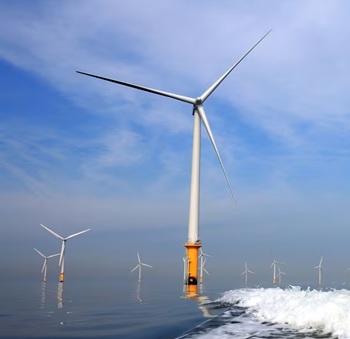 Nova Scotia is stepping closer to the development of offshore wind farms in its open waters, but the success of the province’s pursuit is far from certain. In the past two weeks, the provincial and federal governments formalized the regulatory body that will oversee offshore wind development, announced their membership in the Global Offshore Wind Alliance, and received a report that’s meant to guide their next steps. But there are obstacles to overcome. Another challenge, according to Daborn, is finding a way to support offshore wind while also protecting existing ocean industries. “We have a great deal of concern, particularly about the fisheries, and it is clear that we wouldn’t want to sacrifice the fisheries in any real way in order just to produce some electrons,” he said. Photos, more, >>CLICK TO READ<< 07:48
Nova Scotia is stepping closer to the development of offshore wind farms in its open waters, but the success of the province’s pursuit is far from certain. In the past two weeks, the provincial and federal governments formalized the regulatory body that will oversee offshore wind development, announced their membership in the Global Offshore Wind Alliance, and received a report that’s meant to guide their next steps. But there are obstacles to overcome. Another challenge, according to Daborn, is finding a way to support offshore wind while also protecting existing ocean industries. “We have a great deal of concern, particularly about the fisheries, and it is clear that we wouldn’t want to sacrifice the fisheries in any real way in order just to produce some electrons,” he said. Photos, more, >>CLICK TO READ<< 07:48
Another battle over lucrative juvenile eel fishery lands in court
 A group of companies with licences to fish for highly lucrative juvenile eels along Maritime rivers turned once again to the courts on Friday in their bitter dispute with the federal Department of Fisheries and Oceans over decisions it has made in the fishery. The latest case deals with the department’s unwillingness to raise the total allowable catch in the elver fishery from 9,960 kilograms, a figure that has remained unchanged for two decades and which licence holders argue can be increased. A lawyer for the attorney general of Canada and a lawyer for the group that represents a number of licence holders made their arguments Friday in Federal Court. The judge in the case said he will issue a decision soon. more, >>CLICK TO READ<< 07:02
A group of companies with licences to fish for highly lucrative juvenile eels along Maritime rivers turned once again to the courts on Friday in their bitter dispute with the federal Department of Fisheries and Oceans over decisions it has made in the fishery. The latest case deals with the department’s unwillingness to raise the total allowable catch in the elver fishery from 9,960 kilograms, a figure that has remained unchanged for two decades and which licence holders argue can be increased. A lawyer for the attorney general of Canada and a lawyer for the group that represents a number of licence holders made their arguments Friday in Federal Court. The judge in the case said he will issue a decision soon. more, >>CLICK TO READ<< 07:02
How Mexican cartels and Chinese criminal networks are moving ‘cocaine of the sea’ through Canadian ports
 Chinese organized crime networks and Mexican cartels are using Canadian ports to trade highly lucrative fish bladders for the precursor chemicals needed to produce fentanyl, according to a memo from the Canada Border Services Agency (CBSA). It said organized criminal networks transport the fish — called totoaba — from the West Coast to China, while the chemical precursors to make toxic drugs are sent through Canadian ports. The report from the CBSA, first obtained by Radio-Canada through a freedom of information request, said Canada is being used as a “transit point” for the illegal product — though the quantity of fish passing through Canada and the amount of fentanyl precursors being exchanged for it, were not included in the report. more, >>CLICK TO READ<< 08:16
Chinese organized crime networks and Mexican cartels are using Canadian ports to trade highly lucrative fish bladders for the precursor chemicals needed to produce fentanyl, according to a memo from the Canada Border Services Agency (CBSA). It said organized criminal networks transport the fish — called totoaba — from the West Coast to China, while the chemical precursors to make toxic drugs are sent through Canadian ports. The report from the CBSA, first obtained by Radio-Canada through a freedom of information request, said Canada is being used as a “transit point” for the illegal product — though the quantity of fish passing through Canada and the amount of fentanyl precursors being exchanged for it, were not included in the report. more, >>CLICK TO READ<< 08:16
Want some of your cod back? European Union requests exchange of its northern cod for a chunk of redfish quota
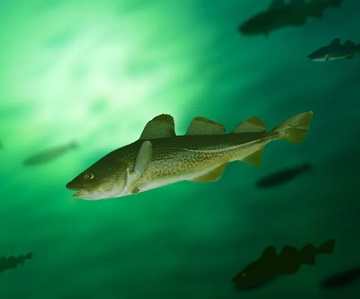 The European Union wants to give back some of its offshore northern cod quota in exchange for some of Canada’s offshore redfish quota. According to Fisheries, Forestry and Agriculture Minister Gerry Byrne, the EU has indicated it is willing to give back 70 tonnes of northern cod and wants 245 tonnes of red fish in return. According to fisheries management information published by the Northwest Atlantic Fisheries Organization (NAFO), the European Union has a total allowable catch of 735 tonnes of northern cod in NAFO Zone 3L — off eastern Newfoundland — for the 2024-2025 season, which runs until June 30. The EU was allocated nearly 1,094 tonnes of redfish for the same zone for the current season. more, >>CLICK TO READ<< 16:14
The European Union wants to give back some of its offshore northern cod quota in exchange for some of Canada’s offshore redfish quota. According to Fisheries, Forestry and Agriculture Minister Gerry Byrne, the EU has indicated it is willing to give back 70 tonnes of northern cod and wants 245 tonnes of red fish in return. According to fisheries management information published by the Northwest Atlantic Fisheries Organization (NAFO), the European Union has a total allowable catch of 735 tonnes of northern cod in NAFO Zone 3L — off eastern Newfoundland — for the 2024-2025 season, which runs until June 30. The EU was allocated nearly 1,094 tonnes of redfish for the same zone for the current season. more, >>CLICK TO READ<< 16:14
A Life Remembered: Captain John Allen Baker,1955 2025
I t is with broken hearts that we share the passing of our precious brother, Captain John Allen Baker, age 69 who lost his life at sea February 7, 2025. John was born December 9, 1955, in Canso, Nova Scotia to Calvin Howard Baker and Virginia Margaret O’Hearn. Having no biological children, we wish to acknowledge his commitment to his stepchildren, step-grandchildren and numerous nieces and nephews. He loved them all, would wrap them in a wonderful hug and generously shared all his resources (including free fish) with them. John’s career and entire life was devoted to the Commercial Offshore Fishery. There is so much more about John that most will never know. He shared his talents, knowledge and passion with anyone who was interested and mentored many fishermen during his life. more, >>CLICK TO READ<< 10:05
t is with broken hearts that we share the passing of our precious brother, Captain John Allen Baker, age 69 who lost his life at sea February 7, 2025. John was born December 9, 1955, in Canso, Nova Scotia to Calvin Howard Baker and Virginia Margaret O’Hearn. Having no biological children, we wish to acknowledge his commitment to his stepchildren, step-grandchildren and numerous nieces and nephews. He loved them all, would wrap them in a wonderful hug and generously shared all his resources (including free fish) with them. John’s career and entire life was devoted to the Commercial Offshore Fishery. There is so much more about John that most will never know. He shared his talents, knowledge and passion with anyone who was interested and mentored many fishermen during his life. more, >>CLICK TO READ<< 10:05
Halifax fisherman remembered after boat capsized
 A Halifax fisherman is being remembered as one of the good ones. Phil Macinnis was one of the two men who died after the Fortune Pride capsized Friday off Sambro. In a show of support, a GoFundMe campaign has raised thousands of dollars to help his family. On the fundraiser’s page, organizer and best friend Brad Sullivan writes, “one of the hardest things in our fishing industry is losing good men to the sea.” more, >>CLICK TO READ<< 11:38
A Halifax fisherman is being remembered as one of the good ones. Phil Macinnis was one of the two men who died after the Fortune Pride capsized Friday off Sambro. In a show of support, a GoFundMe campaign has raised thousands of dollars to help his family. On the fundraiser’s page, organizer and best friend Brad Sullivan writes, “one of the hardest things in our fishing industry is losing good men to the sea.” more, >>CLICK TO READ<< 11:38
Amid ongoing trade tensions, there’s still no timeline on N.L.’s Boston trade office
 A new trade office recently announced by Newfoundland and Labrador Premier Andrew Furey to strengthen commercial relations with New England still isn’t off the ground, as a trade war looms with the United States. Furey announced in September that the provincial government would open a trade office in Boston, located inside the city’s Canadian consulate. Last week, Fisheries Minister Gerry Byrne said the Boston office will play a key role in the province’s navigation of the current economic climate. “One of the key roles of the Boston office [is to] constantly, constantly engage U.S. consumers, U.S. business groups, U.S. congressmen, [U.S.] influencers … to get them to tell the White House that Trump’s decisions are hurting Americans,” Byrne said, appearing on a segment of VOCM’s Open Line. more, >>CLICK TO READ<< 08:29
A new trade office recently announced by Newfoundland and Labrador Premier Andrew Furey to strengthen commercial relations with New England still isn’t off the ground, as a trade war looms with the United States. Furey announced in September that the provincial government would open a trade office in Boston, located inside the city’s Canadian consulate. Last week, Fisheries Minister Gerry Byrne said the Boston office will play a key role in the province’s navigation of the current economic climate. “One of the key roles of the Boston office [is to] constantly, constantly engage U.S. consumers, U.S. business groups, U.S. congressmen, [U.S.] influencers … to get them to tell the White House that Trump’s decisions are hurting Americans,” Byrne said, appearing on a segment of VOCM’s Open Line. more, >>CLICK TO READ<< 08:29
‘He was a legend, one of the best’: North Atlantic claims two N.S. fishermen
 On Thursday evening, Jerome Wilson got a call from the sea. It was his friend, Capt. John Baker. The Fortune Pride had a full load of silver hake aboard and was steaming for Riverport. “He hadn’t been in Riverport for a while, so he was going to wait until morning and steam up the river in the light,” remembered Wilson, who does mechanical work on fishing boats. “Wanted me to meet him there, check a few things over. He was happy. There was no indication he expected trouble.” “I’ve never felt a pain like this in my life,” said Rejeanne Hollett on Sunday, who went from planning her wedding to crewman Phil MacInnis on Thursday morning to planning his funeral that evening. “I would give anything to have him back. Anything.” more, >>CLICK TO READ<< 10:19
On Thursday evening, Jerome Wilson got a call from the sea. It was his friend, Capt. John Baker. The Fortune Pride had a full load of silver hake aboard and was steaming for Riverport. “He hadn’t been in Riverport for a while, so he was going to wait until morning and steam up the river in the light,” remembered Wilson, who does mechanical work on fishing boats. “Wanted me to meet him there, check a few things over. He was happy. There was no indication he expected trouble.” “I’ve never felt a pain like this in my life,” said Rejeanne Hollett on Sunday, who went from planning her wedding to crewman Phil MacInnis on Thursday morning to planning his funeral that evening. “I would give anything to have him back. Anything.” more, >>CLICK TO READ<< 10:19






 Clearwater Seafoods is making big changes to its inshore lobster business and is temporarily laying off workers at its Arichat, N.S. processing facility. Employees were informed Wednesday that the layoffs were effective the same day, and that it was anticipated they would be recalled back to work by a new owner around the first week of May. “We are currently in late-stage negotiations to sell our Arichat live lobster holding facility to an experienced local operator, and we will no longer operate the seasonal lobster processing line at our Lockeport facility,” wrote Christine Penney, vice-president of sustainability and public affairs. Video,
Clearwater Seafoods is making big changes to its inshore lobster business and is temporarily laying off workers at its Arichat, N.S. processing facility. Employees were informed Wednesday that the layoffs were effective the same day, and that it was anticipated they would be recalled back to work by a new owner around the first week of May. “We are currently in late-stage negotiations to sell our Arichat live lobster holding facility to an experienced local operator, and we will no longer operate the seasonal lobster processing line at our Lockeport facility,” wrote Christine Penney, vice-president of sustainability and public affairs. Video,  Four Indigenous chiefs are denying the allegations of a New Brunswick businesswoman that they encouraged members of their communities to poach baby eels during a tumultuous period on Charlotte County rivers in the spring of 2022. In a statement of defence filed late last month at the Court of King’s Bench in Saint John, the Wolastoqey chiefs rejected the claims made by Mary Ann Holland, the owner of Brunswick Aquaculture and Alder Seafood, in one of three lawsuits she’s filed against them. “The Defendants deny that they collectively or any one of them individually authorized, directed or condoned fishing and/or related activities on any of the Rivers,” states the document, filed by OKT lawyer Nick Kennedy of Toronto.
Four Indigenous chiefs are denying the allegations of a New Brunswick businesswoman that they encouraged members of their communities to poach baby eels during a tumultuous period on Charlotte County rivers in the spring of 2022. In a statement of defence filed late last month at the Court of King’s Bench in Saint John, the Wolastoqey chiefs rejected the claims made by Mary Ann Holland, the owner of Brunswick Aquaculture and Alder Seafood, in one of three lawsuits she’s filed against them. “The Defendants deny that they collectively or any one of them individually authorized, directed or condoned fishing and/or related activities on any of the Rivers,” states the document, filed by OKT lawyer Nick Kennedy of Toronto.  Hurricane Fiona left a trail of destruction across the Atlantic Coast in September 2022 wreaking havoc on wharves, fisheries, vessels, and gear and the federal government’s pocketbook. In response to the climate disaster, Fisheries and Oceans Canada (DFO) has had to earmark more than $563 million to deal with Fiona’s aftermath, including damage to 142 out of 184 small craft harbours on the Atlantic coast. With a shrinking budget, the department is bracing for more severe financial and logistical challenges as the climate crisis intensifies. Yet the federal agency is already facing a yearly budget deficit of more than $100 million that hamstrings its ability to maintain its critical buildings, equipment, and other assets.
Hurricane Fiona left a trail of destruction across the Atlantic Coast in September 2022 wreaking havoc on wharves, fisheries, vessels, and gear and the federal government’s pocketbook. In response to the climate disaster, Fisheries and Oceans Canada (DFO) has had to earmark more than $563 million to deal with Fiona’s aftermath, including damage to 142 out of 184 small craft harbours on the Atlantic coast. With a shrinking budget, the department is bracing for more severe financial and logistical challenges as the climate crisis intensifies. Yet the federal agency is already facing a yearly budget deficit of more than $100 million that hamstrings its ability to maintain its critical buildings, equipment, and other assets.  There’s been lots of talk of knocking down interprovincial trade barriers to help promote the buy Canadian campaign launched in response to American tariff threats, but it’s unlikely those efforts will benefit the fishery much. Those involved in the Newfoundland and Labrador fishery have sounded the alarm, warning that the fishery would be among the province’s industries hit hardest by the 25 per cent tariffs on all Canadian exports United States President Donald Trump has promised to impose. The response of the fishing industry has been to express a need to expand its markets beyond the U.S., where much of the locally caught and processed product is sold.
There’s been lots of talk of knocking down interprovincial trade barriers to help promote the buy Canadian campaign launched in response to American tariff threats, but it’s unlikely those efforts will benefit the fishery much. Those involved in the Newfoundland and Labrador fishery have sounded the alarm, warning that the fishery would be among the province’s industries hit hardest by the 25 per cent tariffs on all Canadian exports United States President Donald Trump has promised to impose. The response of the fishing industry has been to express a need to expand its markets beyond the U.S., where much of the locally caught and processed product is sold. 



























